The young man who wants to give Colombia its first world title in filtered coffee

He's barely 20 years old and already represents Colombia on one of the most important stages of specialty coffee. Sebastián Martínez López, born in Circasia, Quindío, has just been crowned national filter coffee champion. And as if that weren't enough, in 2026 he'll represent the country at the World Brewers Cup , an international competition where technical and sensorial aspects blend, and where the barista must not only prepare coffee: they must tell a story and connect with the audience, just as Sebastián has done since he was a child.
His school was his grandfather's farm, the Colombian countryside, the hardened hands of coffee growers, and the learning shared with young people like him, who are revolutionizing the world of coffee in the country today.
Sebastián, you were born and raised in a very coffee-producing land. What was it like growing up surrounded by that culture?
Coffee is everywhere here. You breathe it, you see it, you hear it in conversations. But in my case, the most direct connection came through my grandfather. He lives in a rural area and has a small farm where he grows various crops, including coffee. From the time I was about 4 or 5 years old, I would accompany him to pick the beans, dry them in the sun, and thresh them by hand. It was more of a family affair than anything else, but over the years I came to understand the value of those moments. That's where the bond that later became a passion was born.
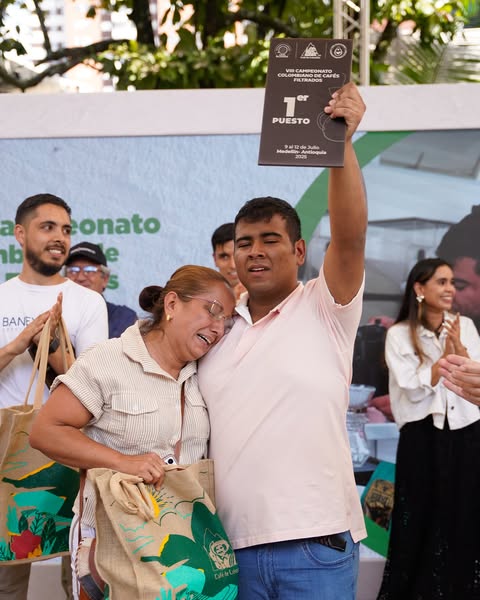
Sebastián Martínez, World Brewers Cup. Photo: National Federation of Coffee Growers of Colombia
And here I want to ask you, is your story an exception today or do you feel that young people still have that connection with the countryside?
I believe there's still a love for the land, but there's a very strong generational shift. Many young people want to leave the countryside, looking to move to the cities, to study something else. And I don't judge them; we all have the right to find our own path. But I also believe part of that comes from not knowing about all the opportunities that the countryside and coffee still offer. The Federation of Coffee Growers and Cafés of Colombia has made great efforts to show that there is a future, that innovation is possible, that the countryside is not synonymous with backwardness. I am an example of that. If I hadn't seen that possibility, perhaps I would have taken a different path.
Did you dream of being a barista since you were little or did that come later?
No, that came much later. As a child, as I said, I liked helping my grandfather, but I didn't see it as a vocation. It wasn't until I finished high school and entered the Sena (National Institute of Natural Resources) that I truly fell in love with coffee. There, I met people who opened my eyes, who showed me that coffee isn't just a beverage, but an entire universe. I stayed because of the people, because of the community experience, because of the respect for the land and the product. Since then, I haven't stopped.
And what was it that caught your attention the most in that universe: the flavor, the technique, the history…?
Without a doubt, the history. The people. The coffee may taste delicious, of course, but what makes it special is everything that lies behind it. The chain that starts with the coffee farmer, passes through the roaster, the barista, and ends in the cup. Learning about that entire process, understanding it, and then being able to communicate it was fascinating to me. And the best thing is that, even though you participate in championships and there's competition, there's a brotherhood in this industry that I've never seen in any other environment. There's a desire to help, to share, to see others grow.
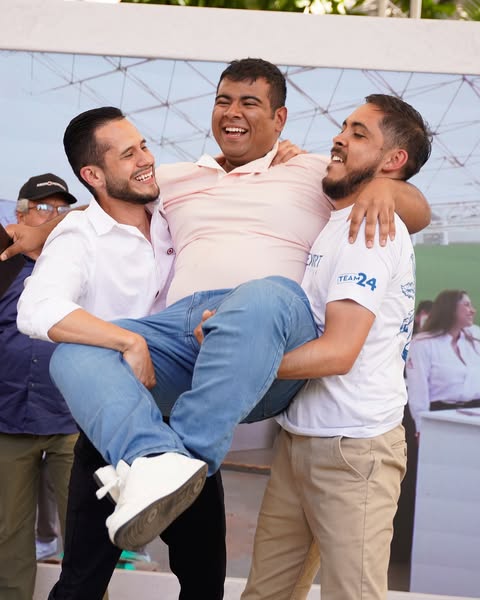
Sebastián Martínez, World Brewers Cup Photo: Colombian Football Federation
For someone who doesn't know anything about the subject, what is a barista and what do they actually do?
The barista is, in theory, the person who prepares coffee-based beverages. But for me, it goes beyond that. They connect worlds. We are the bridge between the coffee farmer and the consumer. We understand the process, we respect the bean, we treat it with care, and then we transform it into an experience. When someone drinks coffee, they are experiencing a moment with themselves or with others. And our job is to make that moment meaningful. The barista doesn't just serve coffee: they tell a story, convey emotions, and connect people.
Let's return to the Sena, a highly respected institution in Colombia that means a lot to many young people. In your case, what did that stage represent for you, and what did you learn there?
It meant a lot. I learned the technical aspects, of course: roasting, threshing, preparation methods, sensory evaluation. But the most important thing was the human aspect. There I met Henry Patiño, who became my coach and my guide. He believed in me from the very beginning. He taught me discipline, to see this as a serious profession. Plus, at SENA, you meet other young people who are just as passionate, eager to learn, and that makes it even more enriching.
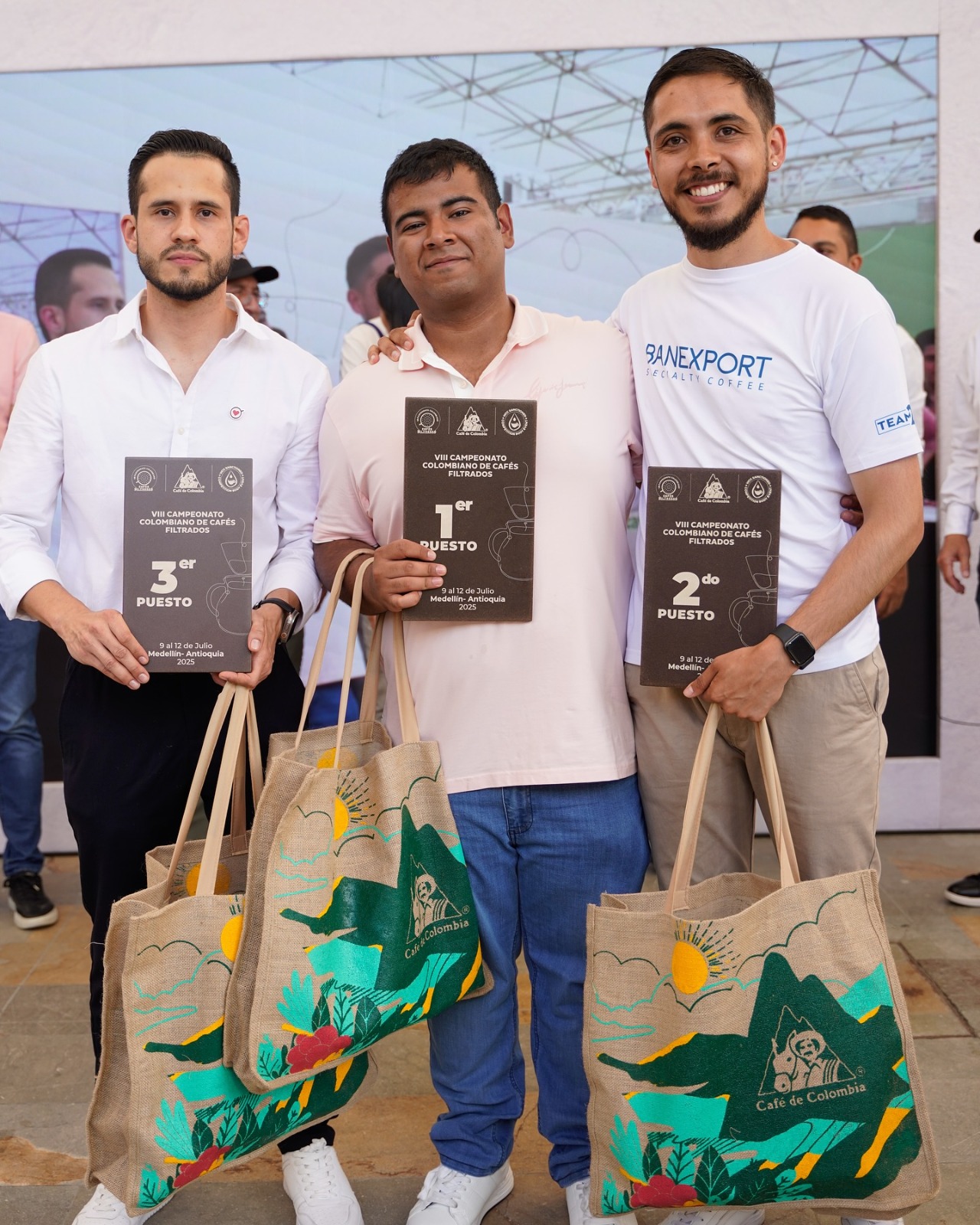
Sebastián Martínez, World Brewers Cup Photo: Colombian Football Federation
You're now a national champion in the world of coffee. Is it common for a 20-year-old to win this type of competition, or is it usually reserved for older, more experienced people?
It's not the norm. Generally, more experienced people participate. But more and more young people are getting into this with a vengeance. And that's thanks to all the work the Federation and other organizations have done to motivate us. Spaces like the National Filtered Coffee Championship, held in Medellín, or the Colombian Coffee Expo fair in Bogotá, are key. There we see that it's possible, that we have talent, that we can go far.
Tell me something, what is that community of young baristas like in Colombia?
Very close-knit, very supportive. Even though we come from different shops, regions, or companies, there's a wonderful spirit of collaboration. We give each other advice, we support each other during the championships. In the final, I felt like the others believed in me more than I did in myself. They encouraged me, told me I was going to win, and that gave me incredible strength. You don't see that kind of camaraderie everywhere.
Tell us about the coffee you won with. What made it so special?
It was a combination of two varieties: Sudan Rumé, processed through black honey, and Geisha, processed through washing. The Sudan was more intense, with strong fruity notes; the Geisha was more delicate and floral. By combining them, we achieved a very complex profile, with notes of basil lemonade, coconut, lulo, pineapple... it's crazy! And the best part: it was grown in Circasia, on Edwin Noreña's Campo Hermoso farm. Being able to work with a producer from the same region was very exciting. We won together.
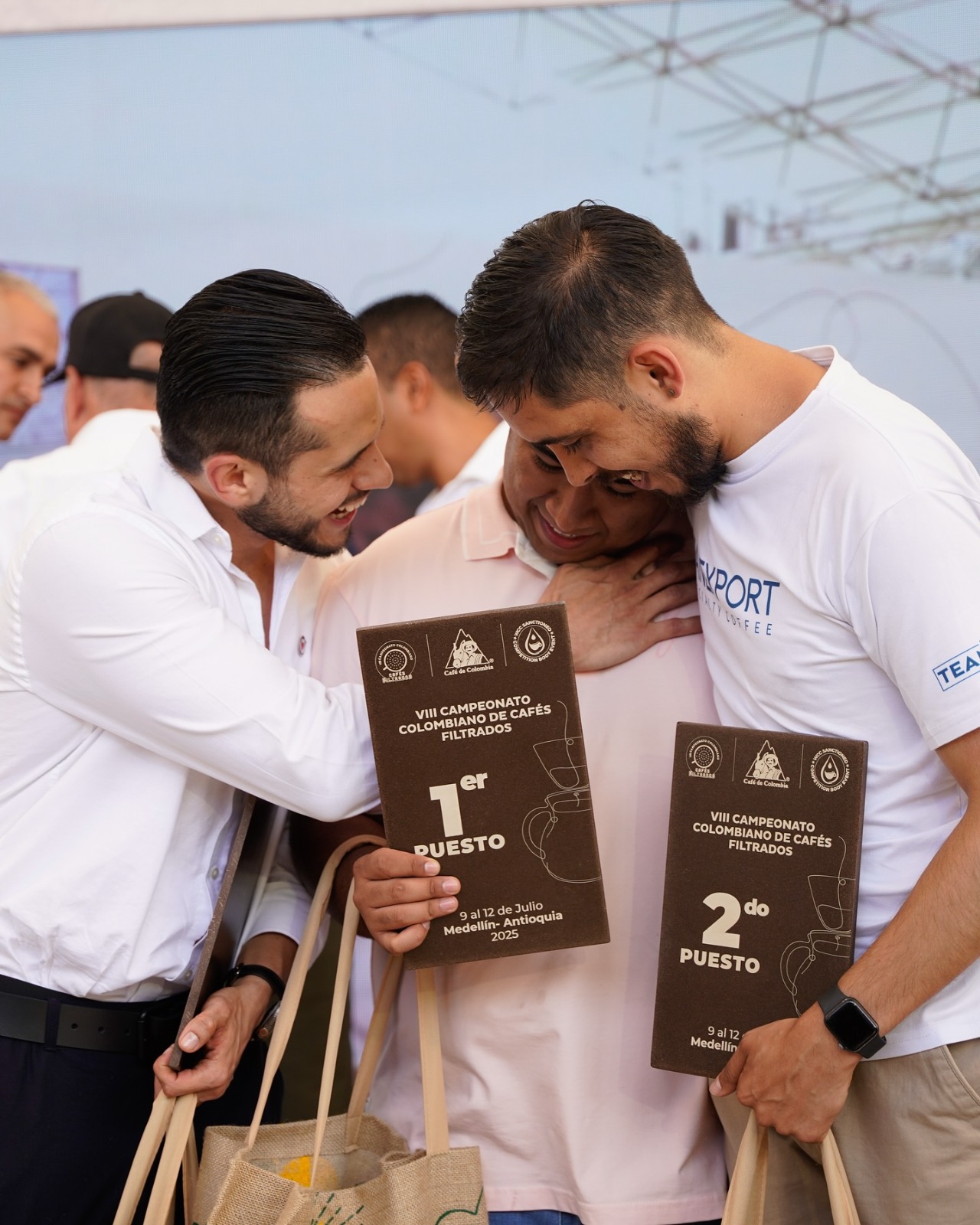
Sebastián Martínez, World Brewers Cup Photo: Colombian Football Federation
Which region would you say produces the best coffee in Colombia?
Wow! I don't think there's just one. All of Colombia produces incredible coffee. I've tried coffees from Huila, Nariño, Tolima, Antioquia, and they all have unique profiles. That diversity is one of our greatest strengths. It's not about competing between regions, but rather understanding that each one contributes something valuable to the national coffee scene.
Look, if you wanted to win over someone of your generation with a good filter coffee, how would you prepare it? What would that coffee be like?
No fuss, ha ha. No scales, temperatures, or timings. I'd just make the coffee and sit down to chat with that person. I'd tell them where it comes from, who grew it, why I chose it. And I'd let them enjoy it. If they taste something different, great; and if not, that's okay too. This is a process; you learn little by little. The important thing is that they see the passion, history, and humanity behind a cup.
As a young coffee grower, what would you ask of the Government, Sebastián, or of the coffee authorities of this country?
I would ask them to continue supporting young people, as they have done recently. Programs like Idéate, which supports innovative ideas in the countryside, or the training programs conducted in Antioquia and Risaralda have been fundamental. We must continue promoting these initiatives and bringing them to more regions. Young people need to see that there are options in the countryside, that we don't have to leave to find opportunities.
And what would you say to a young person today who is wondering whether to stay in the countryside or go to the city?
I would tell them to listen to themselves, to take the time to discover what moves them. If they have a passion for coffee or the countryside, give it a try. Don't be afraid to fall, because that's also how you learn. And know that today, more than ever, there are real paths to staying, to starting a business, to growing from the land. Coffee is the future. And so is the countryside.
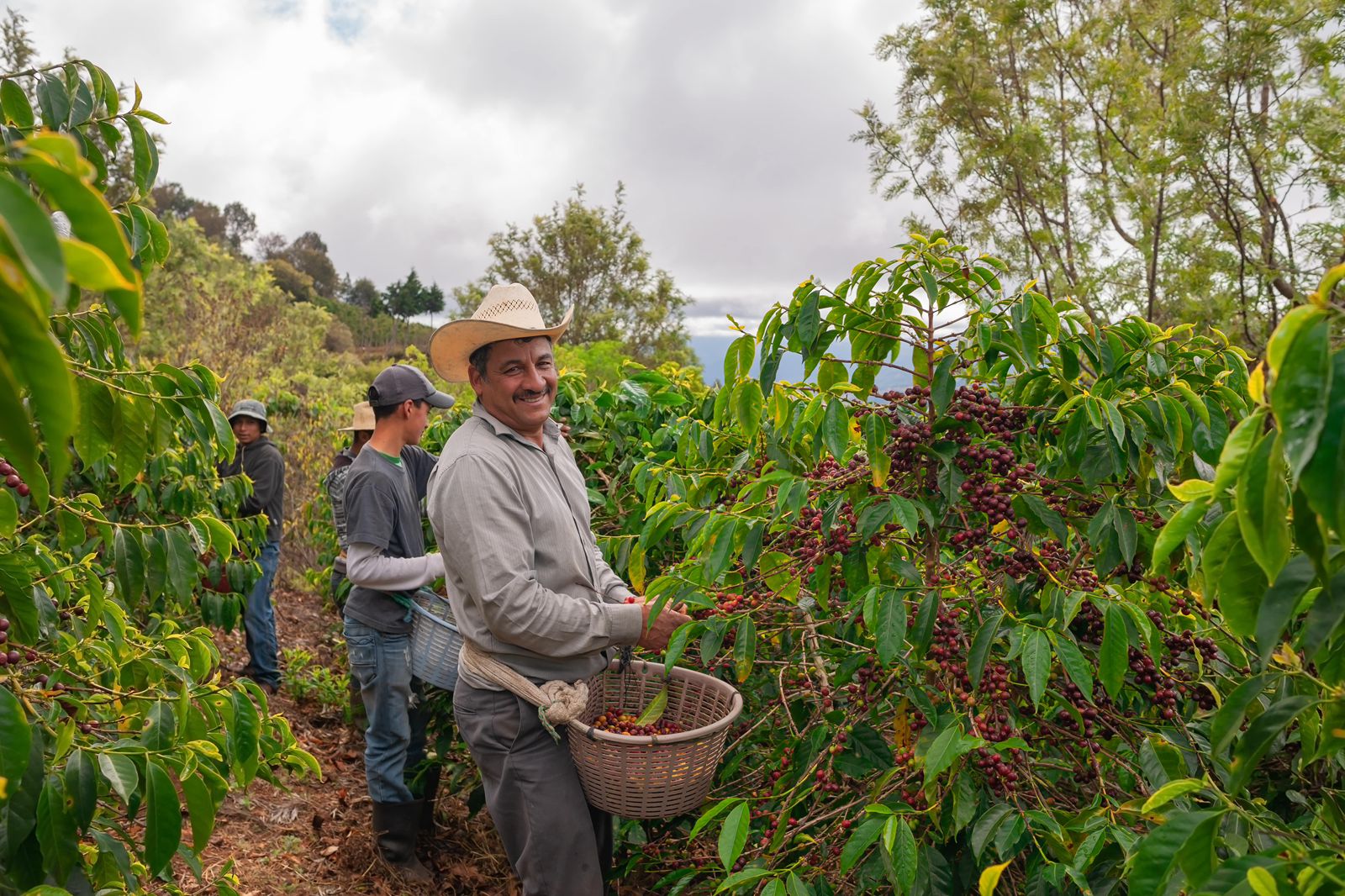
Coffee growers. Photo: Bank of Bogotá
Let's talk about what's coming up. You're going to represent Colombia at the World Brewers Cup. How are you preparing and what are you looking forward to?
My dream is to bring that world title back to Colombia. It's something that's never happened before, and it would be historic. We're just beginning our preparations, but we're already looking for resources, planning training sessions, and fine-tuning the concept. Everything has to be done in English, which adds another challenge. But we have the desire, the discipline, and, above all, the love for what we do. The Federation supports us, but we're also working independently to make sure everything goes well. It's going to be tough, but we're ready to leave it all on the field, as they say.
And finally: You're 20 today. How do you imagine yourself when you're 40?
I see myself teaching, sharing everything I've learned. I want to foster new baristas, support championships, fairs, and processes. I'd like to be part of the generational transition that coffee so desperately needs. To show that you can make a living from this, that you can build it from the ground up. I want to remain connected to the land, to the people, to the history of coffee. And, hopefully, to be remembered as someone who helped pave the way for many more.
Sebastián Martínez isn't even 21 yet, but he already inspires as if he's been doing this for decades. His story is that of a young man who returned to his roots, to the countryside, to coffee, and who today represents the best of a new generation: technique, passion, and a sense of community. The date is in 2026, at the World Cup. And yes, it's worth having a good cup of coffee with Sebastián.
eltiempo


%3Aformat(jpg)%3Aquality(99)%3Awatermark(f.elconfidencial.com%2Ffile%2Fbae%2Feea%2Ffde%2Fbaeeeafde1b3229287b0c008f7602058.png%2C0%2C275%2C1)%2Ff.elconfidencial.com%2Foriginal%2Fe61%2F47b%2F978%2Fe6147b978205dd747fa1e594cca5082b.jpg&w=1280&q=100)
%3Aformat(jpg)%3Aquality(99)%3Awatermark(f.elconfidencial.com%2Ffile%2Fbae%2Feea%2Ffde%2Fbaeeeafde1b3229287b0c008f7602058.png%2C0%2C275%2C1)%2Ff.elconfidencial.com%2Foriginal%2F6a2%2Fbfe%2Fa81%2F6a2bfea81234041b6051bf7c4d087517.jpg&w=1280&q=100)

